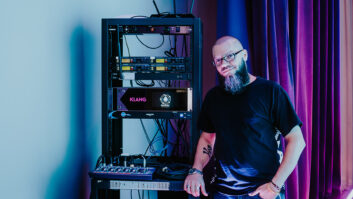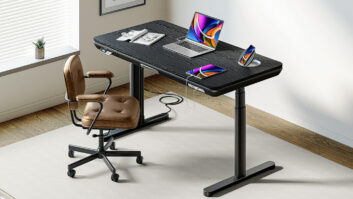A new association will issue a call for proposals in October to develop interoperability standards that it expects to stimulate sales of compressed-audio playback devices for home, car and portable applications.
The group, called the Digital Media Device Association (DMDA), also formed a marketing committee to devise an education and promotion strategy targeting content providers and regulatory and legislative bodies.
The interoperability effort will “remove barriers to adoption,” and the education and promotion effort will “let content providers know what our devices do and don’t do so they won’t be afraid to take advantage of the opportunities,” said Ross Blanchard, marketing director of GraceNote, one of the association founders.
The association has begun to keep members aware of “legislative and legal initiatives that could stunt the industry’s growth,” but the group will eventually undertake lobbying activities, becoming “the advocate of the industry,” Blanchard said. “Content owners have all the mind share.”
The group’s eleven founding members include consumer device makers, chip makers, and the developers of platforms for downloading and playing compressed music. Besides GraceNote, they include SONICblue, Creative Labs, Gracenote, DTS, Texas Instruments, Arm, Oak Technologies, 02Micro, Fraunhofer Institute, and PortalPlayer.
Companies that have participated in the group’s activities since its founding early this year include Microsoft, Dolby, MP3-codeveloper Thomson, Coding Technologies, Cirrus Logic, RioPort, Liquid Audio, Matrix Semiconductor, and eDigital.
“The interoperability issue brought the industry together, and then it [the association] became a vehicle for other things once we began working together,” said DMDA executive director Tom White, who is also president of the Midi Manufacturer’s Association.
The association doesn’t plan to endorse a single compression codec or digital-rights-management (DRM) technology to create interoperable different-brand devices, he said. Instead, the group will develop minimum performance standards to guarantee the ability to easily transfer content among devices, in accordance with copyright holders’ usage rules, he explained. The effort will also create a “predictable experience” when using different brands of devices and different types of devices, whether designed for home, car or portable applications.
The criteria would enable devices to automatically recognize one another when connected, determine each other’s capabilities, and share content and rules, he explained. Practical applications could include one-click transfer of music stored on a PC to a connected portable or to a hard-drive jukebox, making it unnecessary to click on each classical file before transferring it. Another possibility: the ability to transfer a playlist from one device to another without writing a target-device playlist from scratch.












